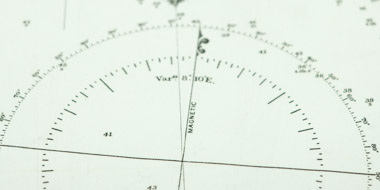Cataloguing media works

How we catalogue our collections
Cataloguing means using metadata to describe a media work – a book, a journal, a website, a map or musical score – in such a way that it can be found in an online catalogue or database.
The information provided in the cataloguing data includes who is involved in a media work and in which capacity, the title of the media work, and the subjects it deals with.
In cataloguing our entire collection, we are fulfilling our legal mandate of recording all works published in Germany.
Our collections are catalogued both descriptively and by subject. Descriptive cataloguing facilitates searches for individual media works using information such as persons, titles, publishers, ISBN, ISSN, URN, and DOI. Subject cataloguing is used to structure our collections thematically using subject headings, DDC Subject Categories, DDC numbers and genre terms. In our cataloguing work, we use cataloguing standards, authority data and classifications.
How you can use our cataloguing data
Our cataloguing data forms the basis of the Deutsche Nationalbibliografie (German National Bibliography). This is available to institutions and partners via our data services.
All cataloguing data flows into the German National Library’s catalogue. Whether you are searching by person, title, ISBN, DDC Subject Category, subject heading or DDC number: our catalogue offers a wide variety of search options, both internationally and on site.
Cataloguing standards and tools
Cataloguing standards
Descriptive cataloguing follows the specifications in the international cataloguing standard Resource Description and Access (RDA); the DNB has been using the RDA DACH documentation on the documentation platform of the Committee for Library Standards since October 2023.
More information:
Resource Description and Access (RDA) - RDA DACH
The Regeln für die Schlagwortkatalogisierung are the basis used for intellectual cataloguing with subject headings.
Integrated Authority File
The German National Library operates the Integrated Authority File (GND) in cooperation with many other libraries, libray networks and other cultural and academic institutions. At present, the GND contains around 10 million authority records for persons, corporate bodies, congresses, geographic entities, specialised terms and works; these are supplemented, updated and used frequently. The GND plays an important part in our cataloguing work.
More about the Integrated Authority File (GND)
More information for professionals (only available in German)
Classification
The Deutsche Nationalbibliografie is divided into approximately 100 Subject Categories derived from Dewey Decimal Classification (DDC). Moreover, a large part of our media works collected are assigned the full or Short Numbers used in Dewey Decimal Classification (DDC).
More about the DDC at the German National Library
Genre terms
At present, we use 90 fixed genre terms to describe the literary genre of media works. These are aligned with the product groups in the directory of German Books in Print (VLB). We use genre terms for cataloguing works of fiction and literature for children and young adults.
Publication groups and cataloguing procedures
The German National Library catalogues media works using intellectual and machine-based procedures. Here you will find an overview of our cataloguing practices.
Further information
- Changes to subject cataloguing procedures at the German National Library from 1 July 2019 (January 2021)
- Intellectual and machine-based subject cataloguing at the German National Library from 1 July 2019
- Elisabeth Mödden, Christa Schöning-Walter, Sandro Uhlmann: Maschinelle Inhaltserschließung in der Deutschen Nationalbibliothek. In: BuB 01/2018
- Ulrike Junger, Ute Schwens: Die inhaltliche Erschließung des schriftlichen kulturellen Erbes auf dem Weg in die Zukunft. In: Dialog mit Bibliotheken 2017/2
- General outline and introduction of the future subject cataloguing procedure for publications at the German National Library (May 2017)
- Erschließung nach RDA in der Deutschen Nationalbibliothek ab 01. Oktober 2015
Contact
Descriptive cataloguing
Subject cataloguing
Machine-based cataloguing
Last changes:
07.01.2026
Short-URL:
https://www.dnb.de/cataloguing





